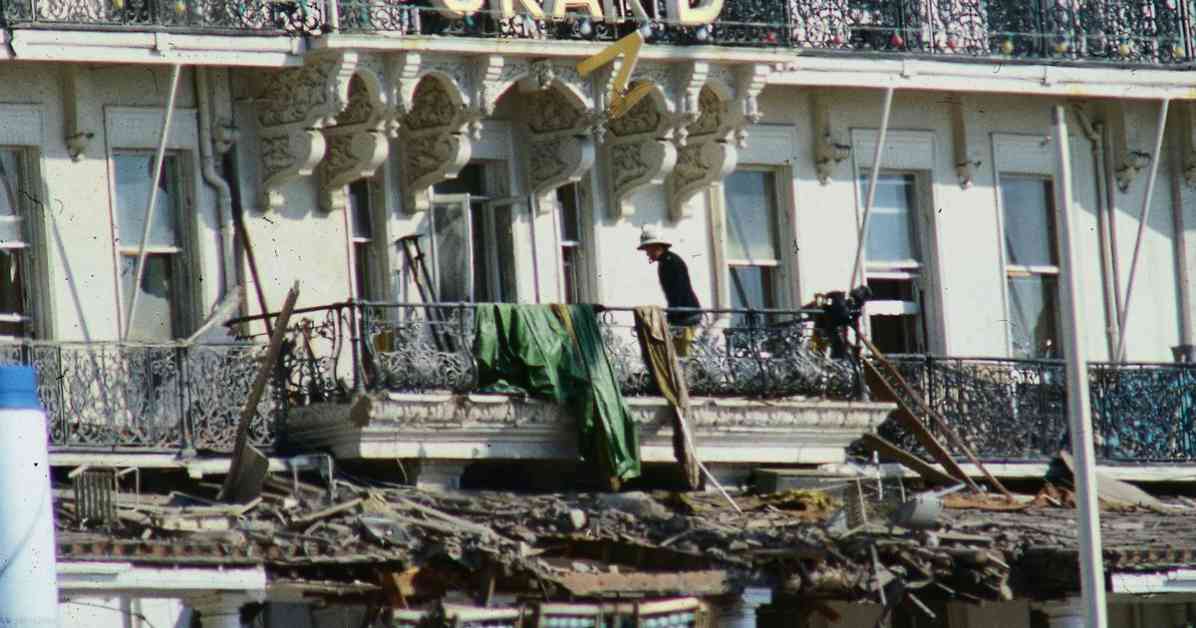The bombing of Brighton’s Grand Hotel in 1984 was a daring terrorist attack carried out by the Provisional Irish Republican Army during the Troubles. The attack aimed to eliminate key figures of the British government, including Prime Minister Margaret Thatcher, who were staying at the hotel for the Conservative Party conference. The bomb, planted by Patrick Magee under the false name of Roy Walsh, caused a massive explosion, leaving a gaping hole in the hotel. Although Mrs. Thatcher and her husband emerged unharmed, the blast resulted in the tragic loss of five lives and 31 injuries.
Those who lost their lives in the bombing were MP Anthony Berry, Lady Jeanne Shattock, Muriel Maclean, Eric Taylor, and Roberta Wakeham. Margaret Tebbit, wife of minister Norman Tebbit, was among those seriously injured and left paralyzed. The IRA claimed responsibility for the attack, and Patrick Magee was convicted of planting the bomb and sentenced to life in prison. However, he was released in 1999 as part of the Good Friday agreement after serving 14 years of his minimum 35-year sentence.
The story of the bombing is now being retold in a new BBC documentary titled “Bombing Brighton: The Plot to Kill Thatcher,” which sheds light on the events leading up to the attack and its aftermath. The documentary provides a chilling insight into the impact of terrorism on innocent lives and the political landscape of the time.
The Brighton hotel bombing of 1984 serves as a stark reminder of the dangers posed by terrorism and the lasting consequences it can have on individuals and society as a whole. It is a testament to the resilience of those affected by such tragic events and the importance of remembering and honoring the lives lost.
As we reflect on this dark chapter in history, it is crucial to continue to educate future generations about the impact of terrorism and the importance of working towards peace and reconciliation. By learning from the past, we can strive to build a more peaceful and harmonious world for all.



